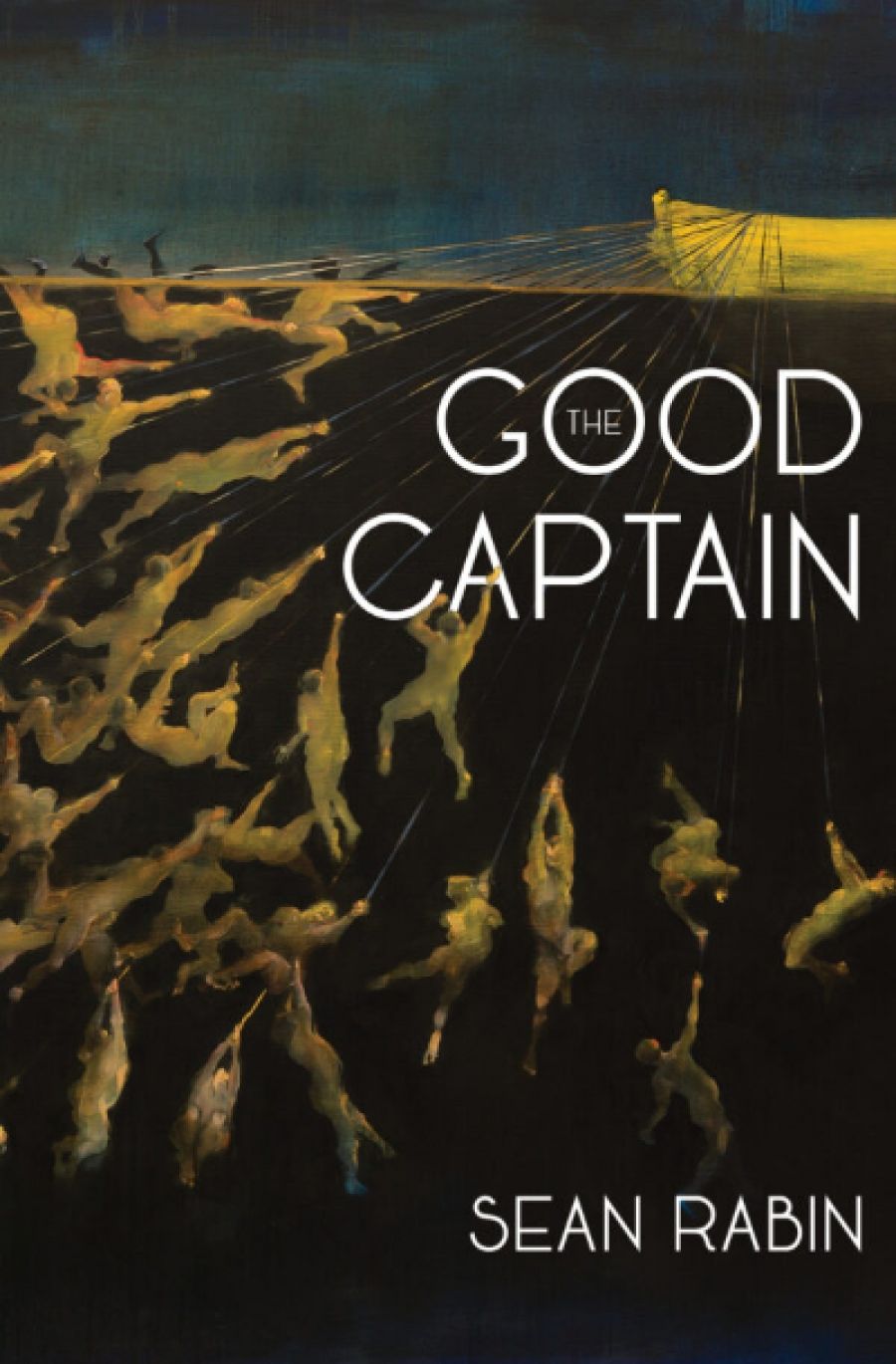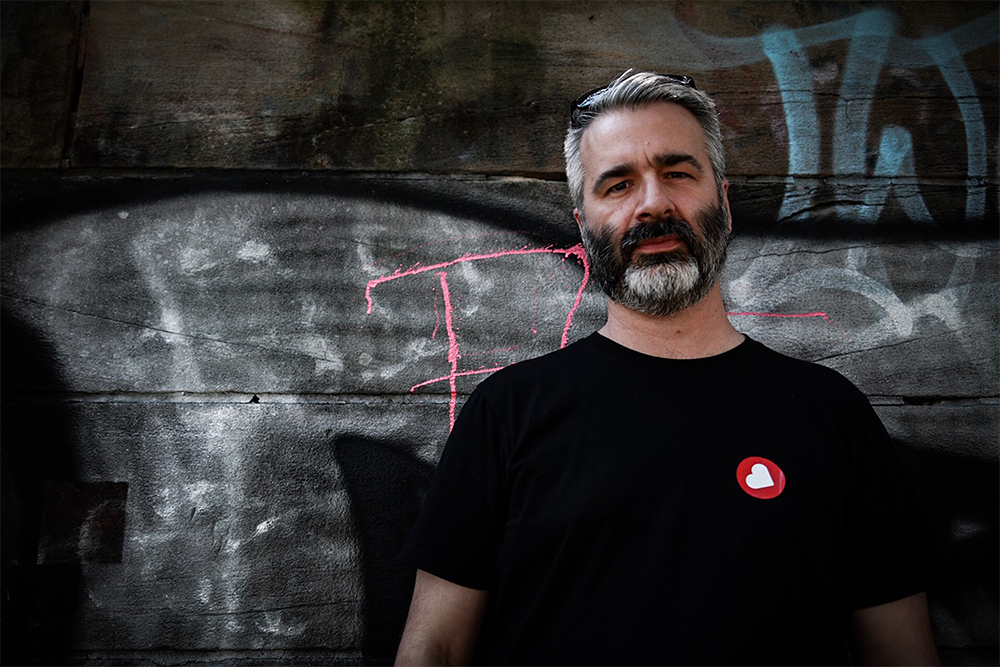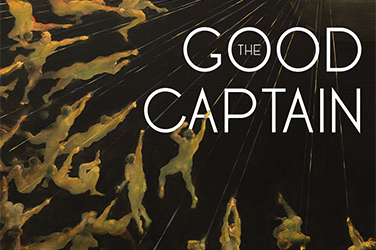
- Free Article: No
- Contents Category: Fiction
- Review Article: Yes
- Article Title: Warm broth
- Article Subtitle: A second novel from Sean Rabin
- Online Only: No
- Custom Highlight Text:
Just when you thought there wasn’t enough to worry about, along come bottom trawlers. While the fishing technique of dragging a heavy net along the bottom of the seabed is nothing new – indeed, there was a British commission inquiry into the practice as far back as 1866 – the sheer size of modern super trawlers maximises their destructiveness. Centuries-old sea coral forests are bulldozed by the thirty-tonne nets, non-targeted fish and turtles become indiscriminately tangled in the web, and the disturbed sediment releases more carbon than the entire aviation industry each year.
- Article Hero Image (920px wide):

- Article Hero Image Caption: Sean Rabin (photograph via Transit Lounge)
- Alt Tag (Article Hero Image): Sean Rabin (photograph via Transit Lounge)
- Featured Image (400px * 250px):

- Alt Tag (Featured Image): Alex Cothren reviews 'The Good Captain' by Sean Rabin
- Book 1 Title: The Good Captain
- Book 1 Biblio: Transit Lounge, $29.99 pb, 368 pp
- Book 1 Readings Link: booktopia.kh4ffx.net/n1v1v6
To counter this obscene practice, the direct-action marine conservation group Sea Shepherd drops giant ‘net rippers’ anchored by steel girders and fashioned with blades. It is a commendable yet probably futile act, given the scale of commercial fishing. But what if a Sea Shepherd-like group were souped-up with futuristic, rocket-launching boats that could annihilate any trawler they came upon? And what if they started going after the world leaders most responsible for reducing our oceans to warm broth? This is the fantasy of Sean Rabin’s second novel, The Good Captain, which sporadically satisfies as a high-seas revenge thriller but fails to dredge up enough nuance in its commentary.
The Good Captain begins in medias res, with a crew of activists driving away from a heist gone partly wrong, their cargo secured but a colleague shot and bleeding out. Landlubbers better enjoy these opening chapters, for once the crew has embarked on the high-tech vessel Mama, it’s nothing but open water from there. This perfectly suits the ship’s captain, Rena, who was born on the sea and isn’t interested in leaving it anytime soon: ‘the noxious odour of the surrounding countryside rendered her dizzy and bilious and mystified as to how anyone could live in such a place’. After a childhood shattered by sexual abuse, Rena understandably feels little kinship with her fellow humans: ‘if she had gills that filtered dissolved oxygen directly into her bloodstream she would never have come near this world’. The rest of the crew is a diverse bunch unified by their collective belief that ‘the time for a rational response to the exploitation of the sea had passed years ago’. Even as Mama heads north on a mysterious and possibly suicidal mission, their collective conviction rarely wavers.
Rabin’s first novel, Wood Green (2016), which was shortlisted for the Readings Prize for New Australian Fiction, also featured a cluster of characters knocking about in an enclosed space, in that instance a cosy Tasmanian village on the outskirts of contemporary Hobart. The Good Captain involves a very different type of world-building. We are in a not-too-distant future where all the IPCC’s worst prophecies have come to pass: ‘droughts across half the country, bushfires burning out of control and the stock market doing its weekly yo-yo dance’.
The ocean, too, is ‘no longer the realm of the routine and experience’, its regular tides given way to ‘rogue waves ... so large they could be tracked from space and christened with names’. This stock dystopian backdrop is given a splash of colour through the fascinating technological advancements Rabin has dreamed up. Mama seems to be at least partially organic, with a ‘swim bladder’ and a ‘capacity for autonomy and self-preservation’. I say ‘seems’ because Rabin eschews the Kim Stanley Robinson approach of patiently explaining how his novum works, instead daring us to hack our way through dense passages of technobabble: ‘it reversed all operational values and concentrated their anticipation lines into an incoherent delirium’.
Readers’ patience with this opacity will vary, but it is preferable to the dialogue, whose bluntness on the topics at hand would make Greta Thunberg blush. Although their backstories and motivations are well sketched, the passion Rabin’s characters feel for their mission too often manifests itself in Twitter-like platitudes: ‘only when the ocean is empty will you believe’. The worst is saved for the verbal skirmishes with the novel’s antagonist, a former prime minister for whom the crew have set a deadly trap. That the PM is a cartoonish dolt is not the problem – given the present state of affairs, it may be the book’s most realistic portrait – but his presence unfailingly prompts a deluge of righteous groaners: ‘the spectre of your commercial greed has become too large’.
Distracted by this dull back and forth, the novel largely ignores its most interesting question: is killing to protect the ocean ever, never, or always justified? After torpedoing a trawler and murdering its crew, Mama’s first mate pauses a single moment to wonder if the opposing ship’s captain was just trying to ‘pay off his home or feed his family’, before quickly sweeping such complications aside: ‘there were no valid reasons to work aboard a trawler’. ‘Fish good, fisherman bad’ makes for a good bumper sticker, but it ignores the complex position of many caught up in capitalism’s gears. It certainly feels like a cop-out that we never learn the national origin of the sunken boat or its crew: does it matter if was Vietnamese or Australian?
The Good Captain navigates around these tricky little depth charges, content instead to glide by on a surface of incident: explosive buoys, high-speed chases, enormous jellyfish smacks. It’s diverting enough, particularly a section set in the ruins of a Chinese fishery eerily beset by red algae. Undermining the action, however, is the book’s nihilistic streak, represented by Rena’s reveries on the immense indifference of the ocean. When she wonders ‘why would the ocean care about you? Or me for that matter?’, it’s tempting to add ‘or books’? Great books, bad books, mediocre books: they’ll all pulp equally in the hot water of our flooded future, and there will be no nets coming by to disturb them.


Comments powered by CComment